login screen design for mobile app
The success of your application depends on a variety of factors, but the most important among them is smart mobile user experience (UX).
As practice shows, the best-rated apps in all stores are exactly the ones with a memorable UX.
Obviously, this is not all you have to consider – there is a variety of elements that need to be included and optimally combined, so that the UX would be perfect in all aspects.
The best course of action for your UX is to follow the best samples and practices in the industry.
You should apply common and familiar patterns, and study your audience to see what could have the best effect on them.
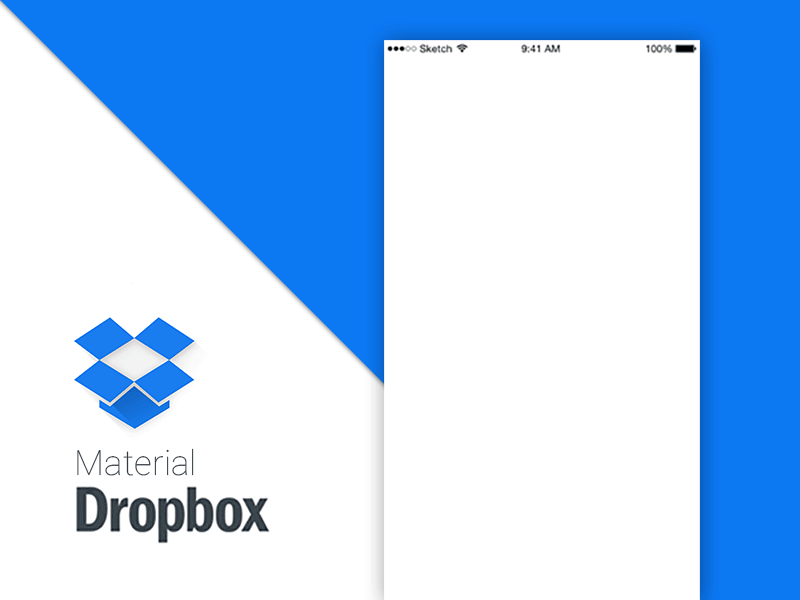
The process is not exactly easy and involves a concrete understanding of a variety of psychological underpinnings for each practice you choose.
Get 300+ freebies in your inbox!
Subscribe to our newsletter and receive 300+ design resources in your first 5 minutes as a subscriber.
Thank you!
One more step is needed. Please check your inbox for the newsletter confirmation email.
in the end, you should produce an interface that excites users, rather than one that frustrates them. To make matters easier for you, we prepared a guide with several UX stardom strategies you should put into action:
Include text input fields
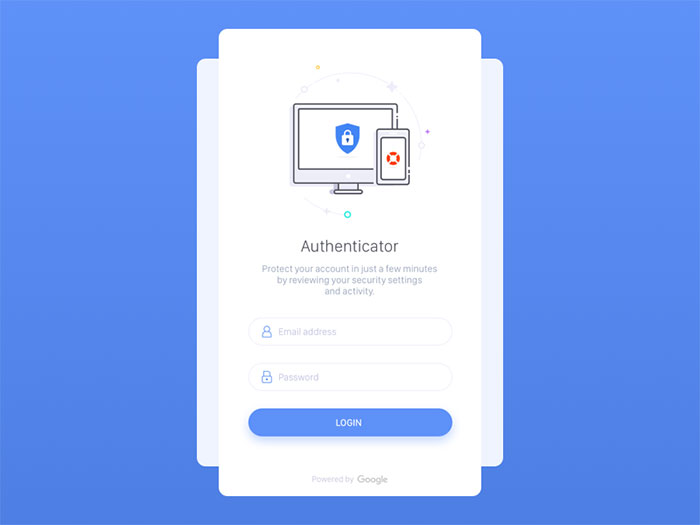
If users have to login in order to use your services, information fields are the primary features you have to work on to create a great UX. This means thinking carefully about your login form.
When constructing your login page design, make your fields visible and clear, and don't force users to navigate around or take additional steps to enter the app. Once they launch the app, login pages are the first things they should see.
Bonus tip: Instead of going with the traditional 'Login' or Sign in' buttons, be more creative and include direct input fields. Make sure the app will memorize their data so that they won't always have to re-insert their information on the login templates.
'Sign Up' and 'Sign In' should not be put in the same section
Most of the time, we see Sign Up and Sign In buttons positioned close to each other on your login screen design, but this can have a reverse effect on users.
Both actions contain the same verb and look similar to each other, so they may confuse users who will choose the wrong option over the right one. With limited time and entry problems, they may get frustrated and leave the app. There is, therefore, a need to think carefully about your login design.
Basically, no element embedded in the app's interface should make users pause and think. The best login page design should be clear, simple and concise.
If you want their experience to be spotless, divide these fields, and make the difference clearly visible. Additionally, you can use different verbs or explain in brief what each field is about.
Add different input fields in the Login and Registration sections
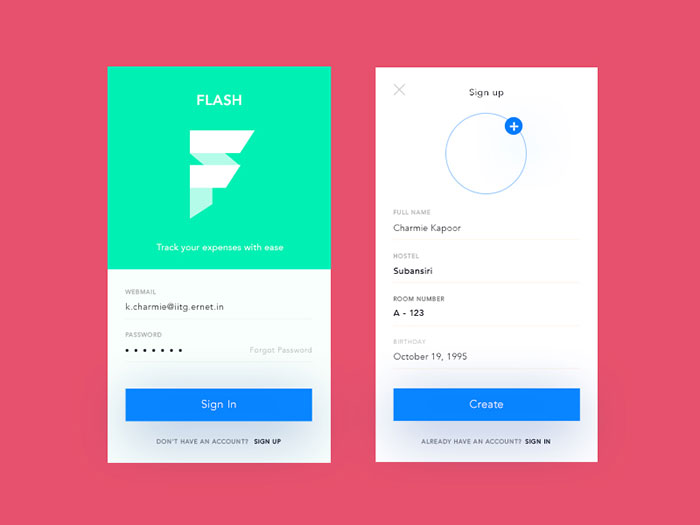
Another thing that confuses users except for the verb 'Sign' is the fact that both login and registration sections usually have the same number of input fields (usernames, passwords, and email addresses).
In order to distinguish them entirely, and to minimize the chance for new users to try to log in directly, use different input fields for your login forms.
Make the password visible
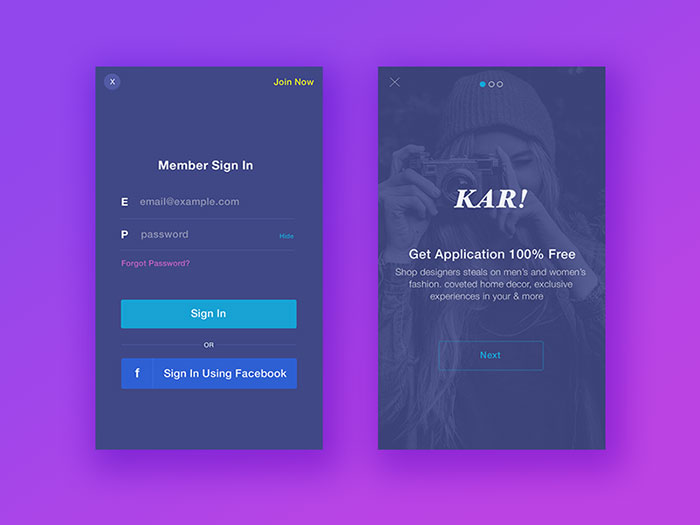
Advertisement
Another problem users frequently have is mistyping their password, as most of the password input fields are masked due to security reasons.
It happens even to the most experienced typists, especially when they're logging in from mobile devices.
What you can do to prevent this is to include a 'show password' checkbox or icon next to the password field in your login page designs. Once users click on it, they'll have the password unmasked and see where they got wrong. Mobile login pages with small keyboards are the perfect setting for such options.
Let them know what's wrong
If the app detects a wrong combination of passwords and usernames but doesn't report exactly what the problem is, the user may try numerous time and get angry enough to quit.
This is why your login UI should consider generic responses (for instance 'Your password or email doesn't match), and give them instant feedback on how to fix this problem.
Ask for email addresses or phone numbers instead of unique usernames
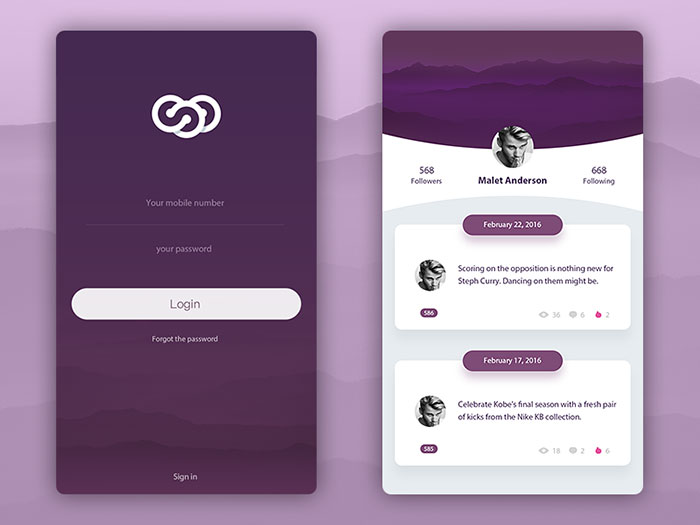
Why complicate your login screen template with usernames people barely remember? In cases like these, you will face many avoidable difficulties:
The username must be a unique one, which means people will repeatedly try to insert one the system doesn't already have or end up using their real name.
After a while, the user comes up with a unique login name but forgets it only after a while because it doesn't mean anything to him.
The best login pages present users with several login options, and giving them the chance to choose and try usernames without getting frustrated. A compulsory part of the process is to allow them to register using their email address or password.
Include a 'Forgot Your Password?' flow
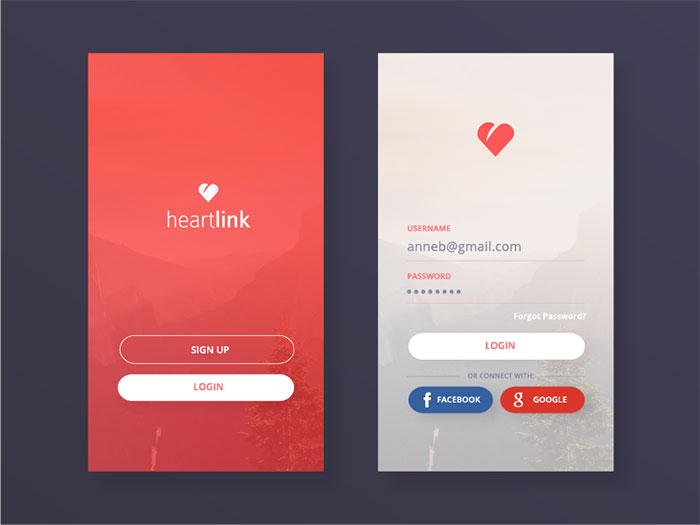
Forgetting passwords happens to all of us, which is why it is imperative for you to give users the chance to restore them and do so directly from the login page.
What it takes is to add a 'Forgot Your Password' link right under the input fields of your login form, and enable the system to send recovery codes to users' emails or phone numbers.
Don't lock users' accounts without warning them
In order to avoid forced entry and brute attacks, many websites and apps lock out accounts after a series of mistyped attempts.
Security comes first, but you should at least try to warn users how many attempts they've got left before locking them out. You can also share extra details, such as the fact that it will take 10 minutes after the attempt to try again.
UI mobile login form inspiration
If in the past the apps were using the same login form with no style and customization.
Nowadays the best login screens have a unique login design. This is really important especially if you want to create a brand around your app and its services.
Designers and developers as well are aware are acknowledging the importance of logic designs.
This is true, especially for mobile login screen design where the user interface plays a much bigger role than on regular 'desktop' websites. Mobile phones will need a responsive login form which is easy to use.
Designers are paying a lot of attention when designing this element, making sure the app login page design is both useful and aesthetically pleasing.
In this article, you will see examples of mobile user interface design inspiration to give you a hint on how a login form must be designed for mobile design.
Roostio Login Screen
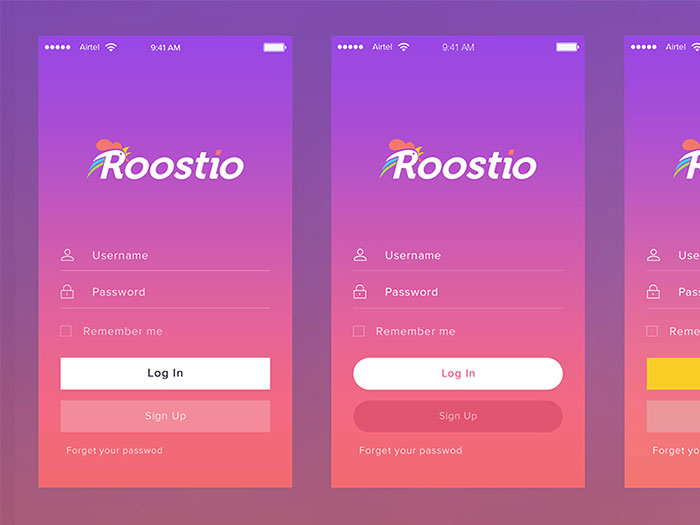
Login Screen
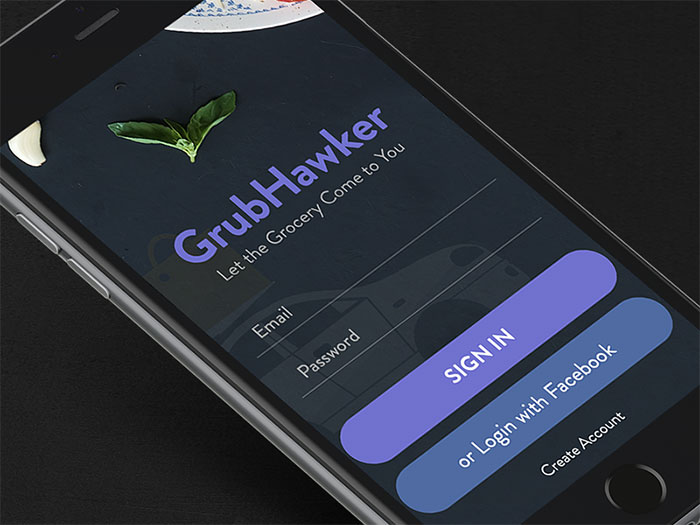
Job Board – Company Profile / Login
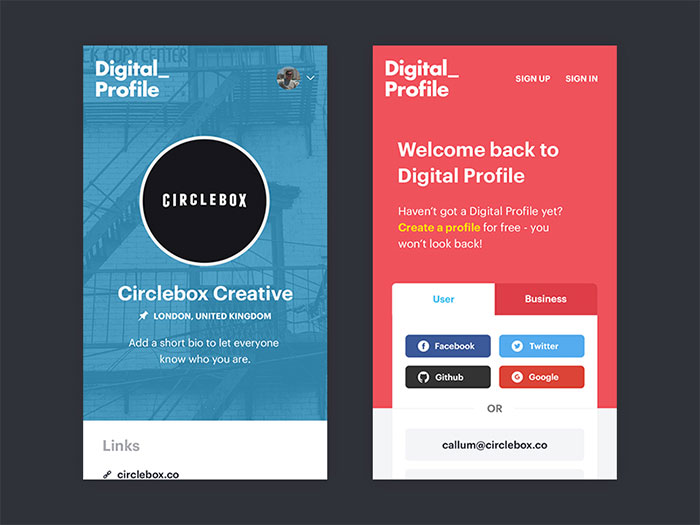
Shopping app
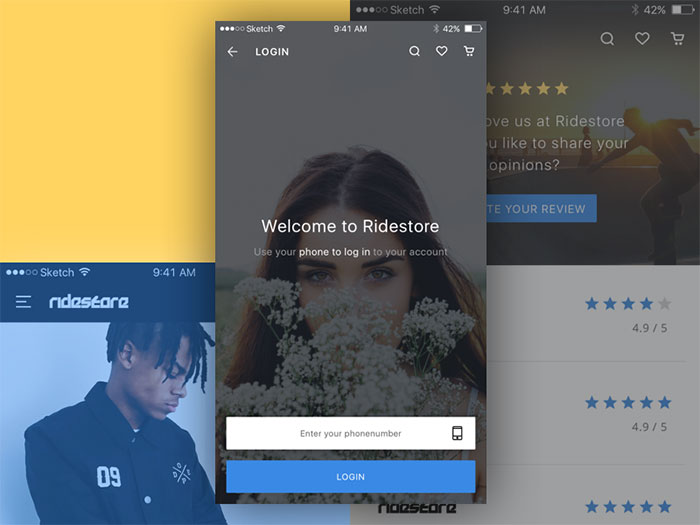
Tailslife: Login
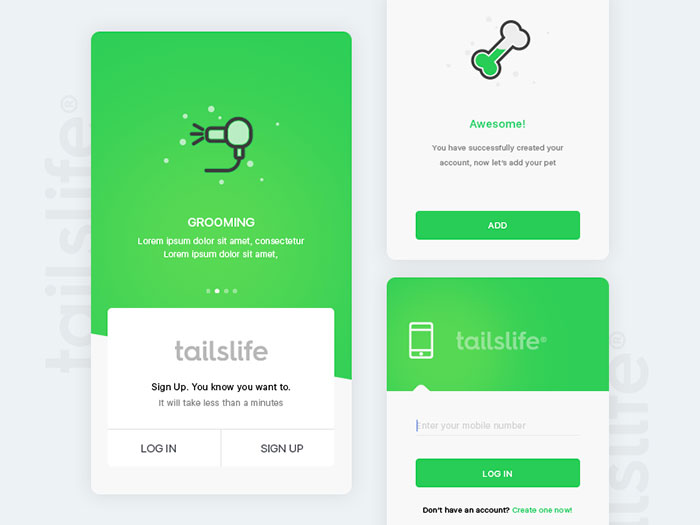
Moody Sign Up/In Screen
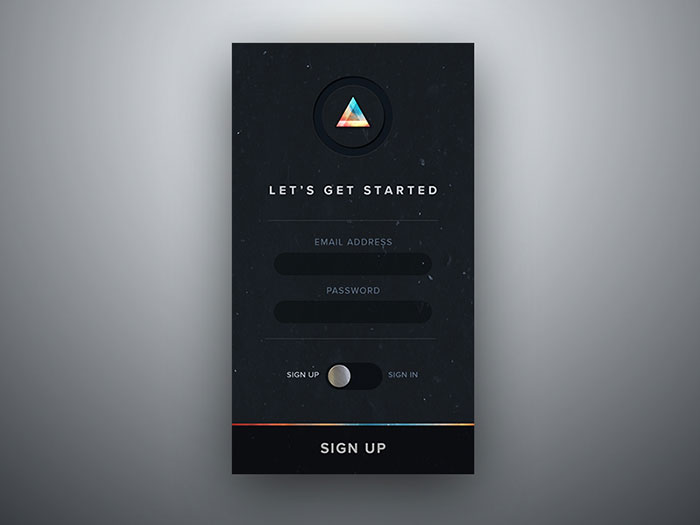
Bandio App Login & Sign Up
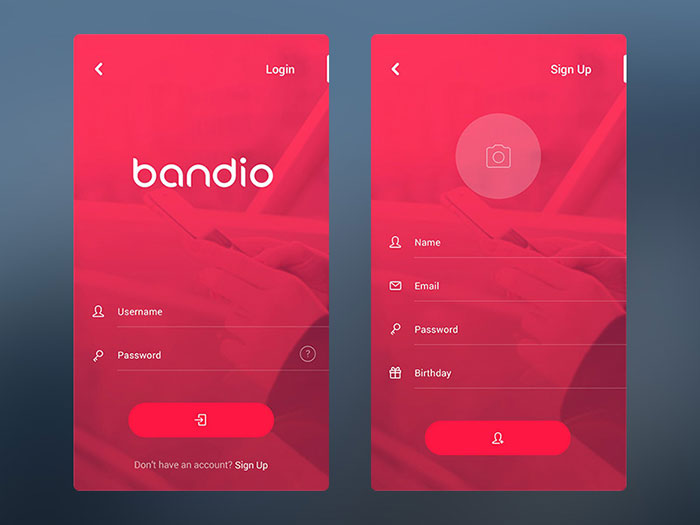
Parts – login dark side
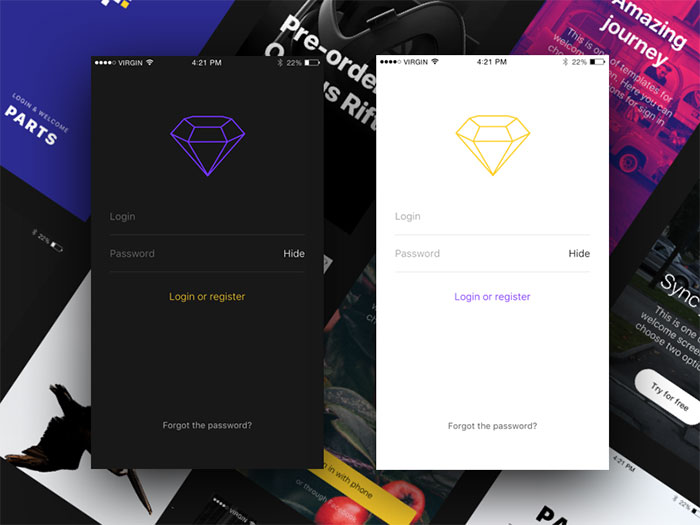
Login Screens
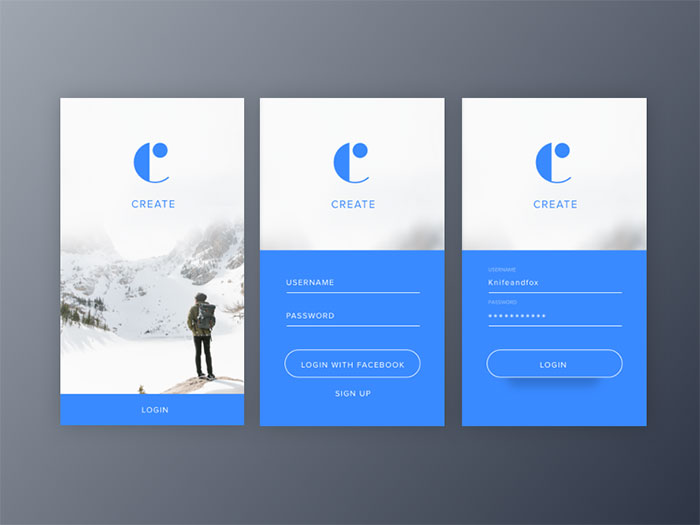
ZSSK – login and route detail
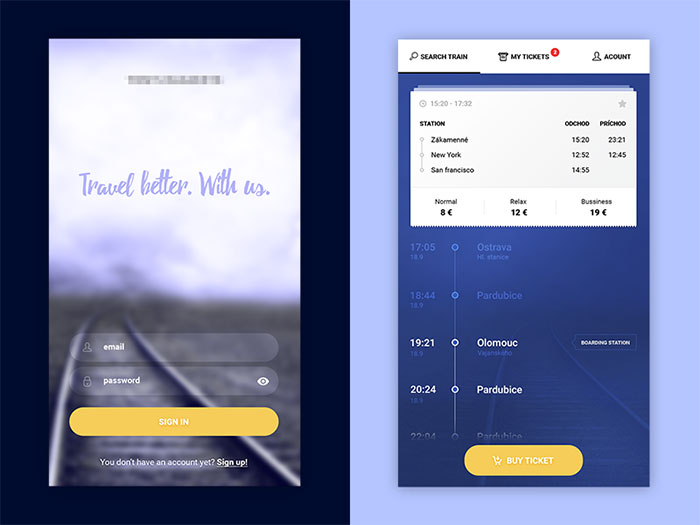
DailyUI Day001
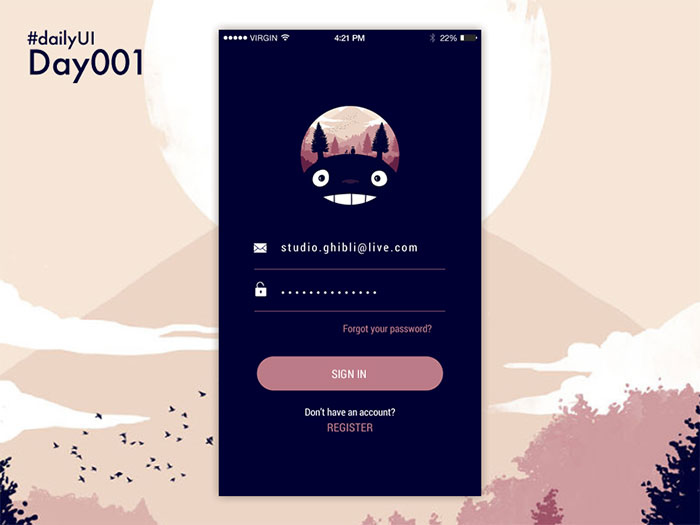
Skype Redesign
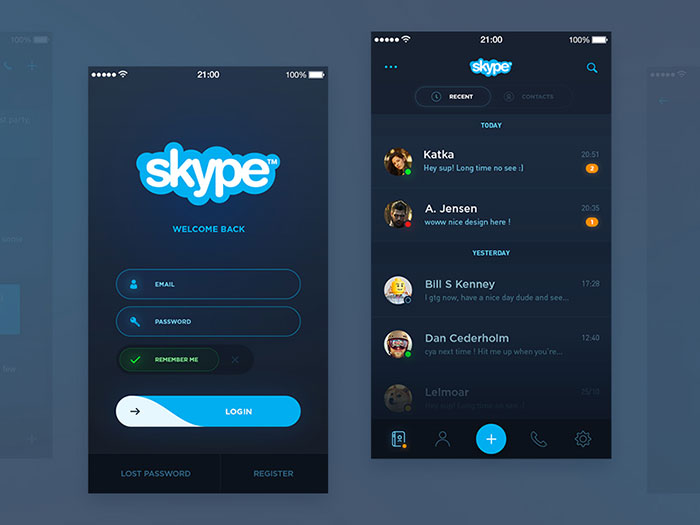
Sign Up Window – Daily UI #001
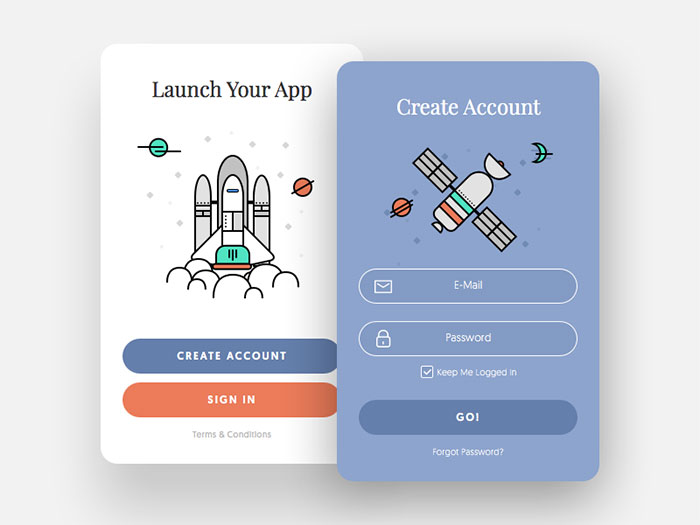
Ending thoughts
Logins are already difficult enough for users, so making them even more complex is not the smartest decision for your mobile app. Avoid extra large and unfamiliar login form designs, and make input fields clearly visible. A simple login form will improve your user experience. Many mobile applications use a stylish login form which is easy to navigate. Your excellent login page up and your user experience will combine to keep your users returning to your app. Therefore thinking carefully through your mobile login page is vital.
These are only some of the techniques to consider to save users time and help them enjoy the service you provide.
Unlimited Downloads: 1,000,000+ Fonts, InDesign Templates, Photoshop Actions, Mockups & Design Assets via 
login screen design for mobile app
Source: https://www.designyourway.net/blog/inspiration/mobile-user-interface-login-form-design-inspiration-41-examples/
Posted by: jacksonackles94.blogspot.com

0 Response to "login screen design for mobile app"
Post a Comment